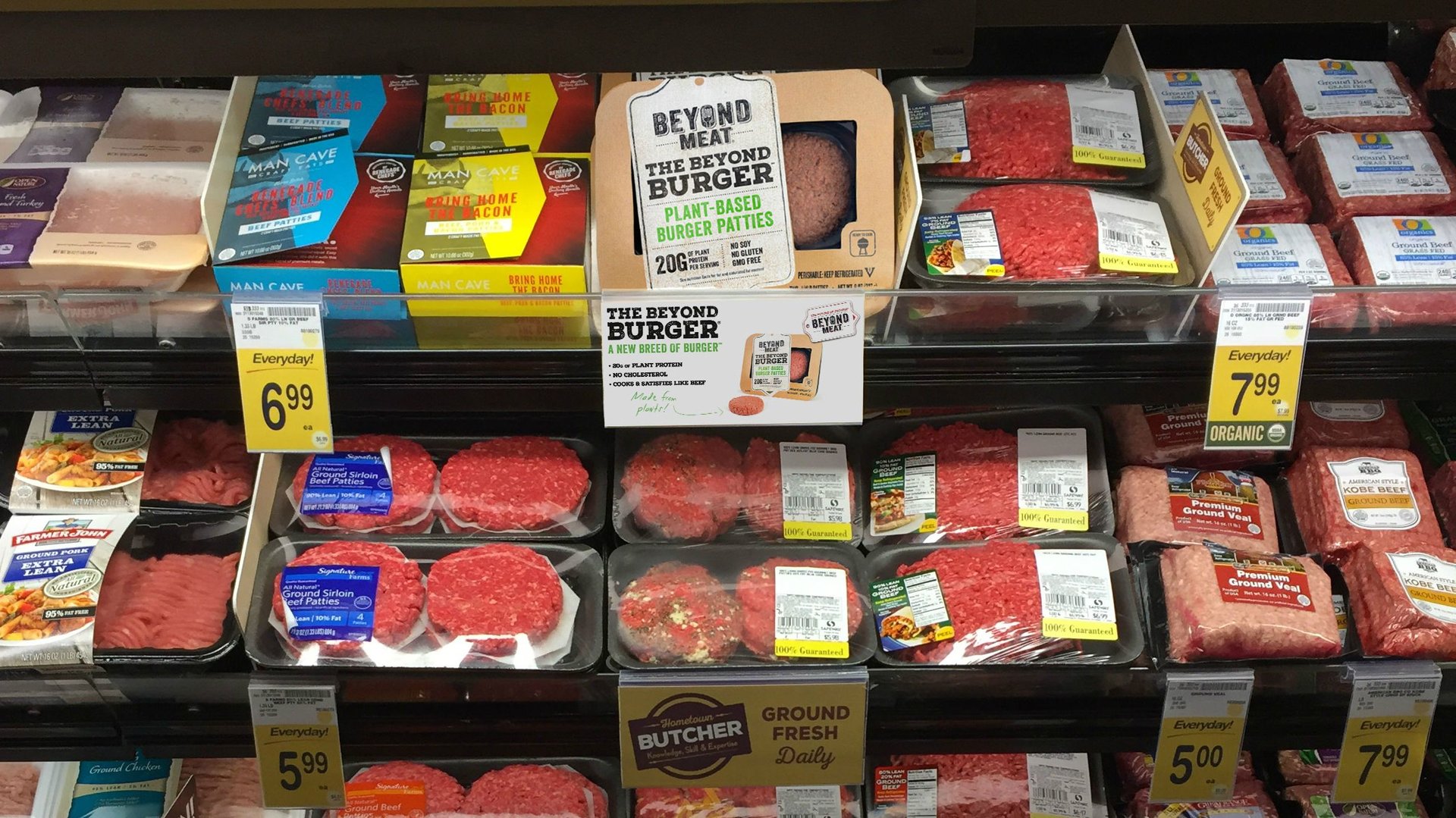A single state wants to define meat for America
The Missouri beef industry borrowed a move from the animal-activist playbook in an effort to set the standard for what is technically meat and what is not in the United States.


The Missouri beef industry borrowed a move from the animal-activist playbook in an effort to set the standard for what is technically meat and what is not in the United States.
In an move that has drawn criticism from the American Civil Liberties Union and name-brand foods such as Tofurky, Missouri this week enacted a law that prohibits meat alternative companies—including those that make plant-based and cell-cultured products—from using the term “meat” on their packaging. The law, backed by the state’s huge cattle industry—Missouri has more beef cattle than any state besides Texas—is the first of its kind in the US and is already the subject of a lawsuit (pdf).
Specifically, the new rule states that if a food product isn’t from an actual cow, chicken, pig, turkey, or other animal with two or four feet, then it can’t be marketed as meat. That’s significant for the meat-substitute market, which is expected to be valued at $7.5 billion globally by 2025. The law technically applies only in Missouri, but it could impact every other state in the country, since it’s a major pain for food companies to tailor specific on-package marketing for just one state. It’s a clever move on the part of the Missouri Cattlemen’s Association, taken right from the playbook of food activists.
In 2016, Vermont enacted a law requiring companies clearly label on product packaging if their foods contain genetically modified (GM) ingredients. It was a big step for one of the smallest states in the country, and it triggered the US Congress to pass an industry-backed federal bill on GM food transparency that then-president Barack Obama signed into law, overriding the Vermont legislation by mandating less rigorous labeling. According to food companies, it was going to be onerous to create a whole line of product packaging just for Vermont, thus showing the power a single state can have on the larger food system.
Also in 2016, Massachusetts voters elected overwhelmingly to approve a ballot measure that made it illegal to sell animal food products—such as pork or eggs—if the animals were raised in small, caged environments. That followed a similar ballot measure in 2008 in California. Those two laws have fundamentally reshaped the US egg industry, essentially sending a message to farmers in middle America: “If you want to sell your products in our densely-populated states, you have to change the way your raise and keep your farm animals.” After defeats in challenges to the laws in both Massachusetts and California, many American egg farmers in states such as Iowa have had to make costly changes to their farming practicing, including the physical layout of their barns, to comply with the new laws on the east and west coasts.
Now Missouri is trying to use a similar approach to force plant-based meat alternative companies, such as Tofurky, Beyond Meat, and Impossible Foods, to stop using the word “meat” as a marketing term. And if they do, they could be hit with a $1,000 fine per product and their executives could face jail time. The law would apply also to future cell-cultured meat products, none of which have yet hit the consumer market.
A coalition that included The Good Food Institute, ACLU of Missouri, the Animal Legal Defense Fund, and Tofurky on Aug. 27 filed a lawsuit to try and jettison the new law, which passed earlier this year. The group’s main contention is that the law violates the First Amendment.
“Missouri is putting its thumb on the scale to unfairly benefit the meat industry and silence alternative producers,” said Stephen Wells, director of the Animal Legal Defense Fund, in a statement. “This law violates various constitutional principles, including free speech–which should be a concern for everyone, regardless of diet.”
For their part, the Missouri cattlemen say it’s an issue about “marketing integrity” and ensuring that consumers aren’t confused or misled as to what they are buying in the grocery stores or in restaurants.